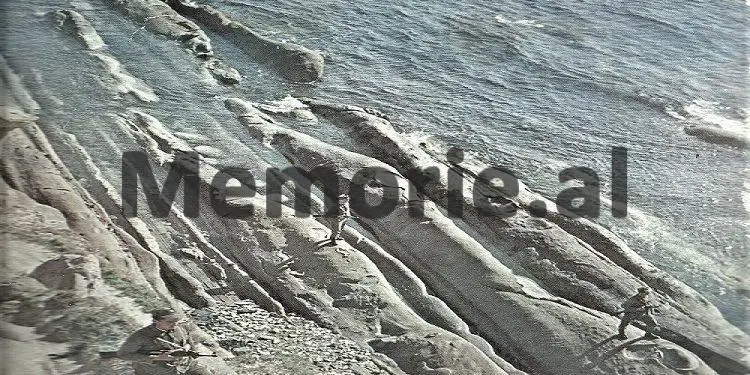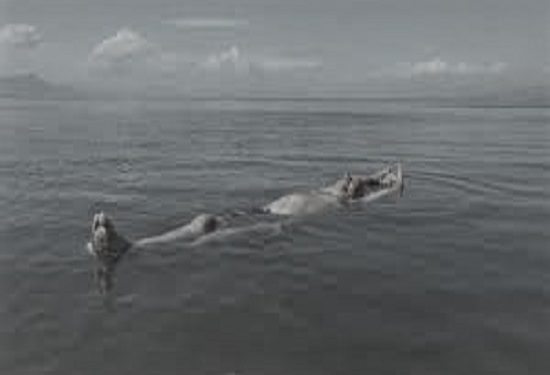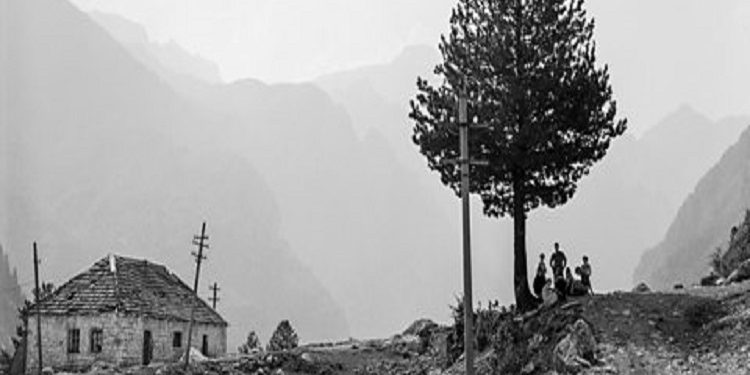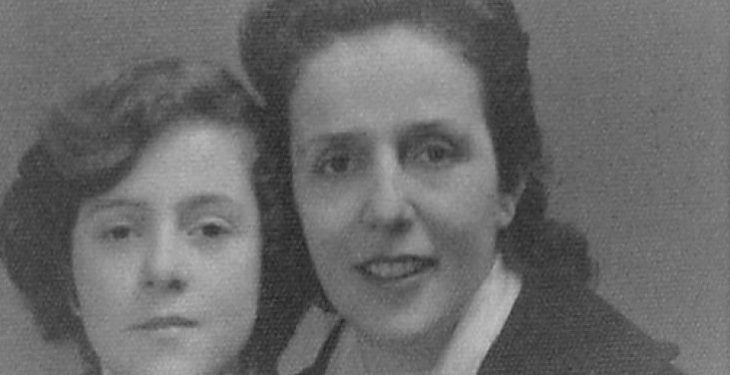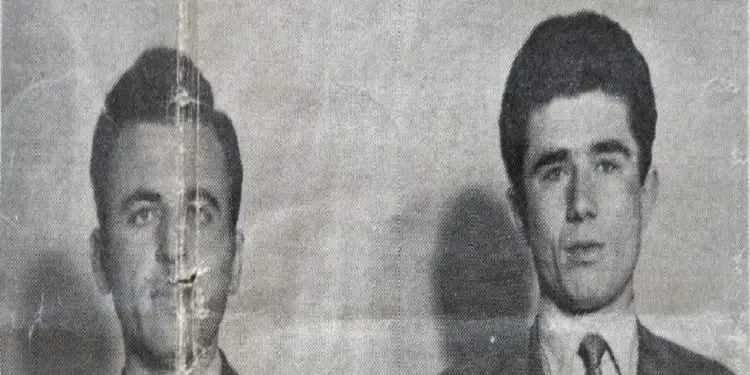By Vasil Qesari
Memorie.al/ The overthrow of the great totalitarian edifice in Albania would leave behind, not only the change of the system, accompanied by lots of hopes, mirages and cries of happiness but, unfortunately, also many wounds, dramas, victims, dust, milk and disappointments from the most different. Ten years and more after that event, which deeply shook society, completely overturning many previous codes, rules and concepts, people still continue to ask themselves such questions as: What really happened in society Albanian, during the last 50 years of the dictatorship? How was it possible that the system managed to warp everything? Why did people accept it? What was the totalitarian logic of the transformation of society and the individual? How were the structures of totalitarian mechanisms conceived and functioning: propaganda, secret police and the exercise of the ideology of terror? How did it happen that among all the communist countries of Eastern Europe, Albania was considered an exception or a special case? Why did Enver Hoxha remain blindly, fanatically loyal to Stalin until the end, turning the country into a prison where violence, fear and purges continued until the end of the 80s? Why was the country so insanely isolated, locking people up between bunkers and barbed wire? Why, then, did all the above phenomena happen…?! The book “Post-scriptum for Dictatorship” does not claim to provide definitive answers to the above questions, or the complexity of the reasons that brought and maintained the totalitarian power in Albania. Nor is it a complete, deep and comprehensive fresco of the life and suffering that people experienced during that system. Its author, perhaps, has the merit that together with the retrospective view of the totalitarian period as well as the zeal of a passionate analyst, he has tried to turn his head back once again, to give not only his personal memories and opinions, but also to return once again to the vision of that era with the simple philosophy of preserving the Memory and supporting the Appeal to never forget the well-known maxim, that…the corpse’s nails and hair continue to grow even after death! Ten years or more after the great revolution, the book in question has current value and we hope it will be appreciated by the reader because, as an Albanian researcher also says… the greatest evil that can happen to a people comes when he fails to analyze his own past. An amnesic people are forced to be constantly neuropathic and repeat their painful experiences…!
Continued from the previous issue..
ESCAPES FROM VLORA
… The escapes from Vlora had started after the coming of the communists to power and then continued without interruption for years. Thus, in the middle of the 50’s, the news of a failed escape attempt broke out in the city. The event caused a sensation, especially among the school youth, who only talked about it. Two high school students excellent in lessons, but from a bourgeois family, Dh. Doga of H. Bezhani, in great secrecy, had long made plans to escape by swimming aboard a foreign tanker.
The ship came often to be supplied with oil and stayed in the harbor, not even two or three hundred meters from the rocks of Cold Water. But, the bold plan had failed, shortly before its realization. While the boys were taking off their clothes and getting ready to enter the sea, they were caught in the act by the State Security. As it turned out later, one of the comrades had betrayed them, just a few hours before they set off towards the hope of freedom…!
Another escape, which made a lot of noise, was that of the boy Q. Gjonzenelaj, grandson of the ardent nationalist and the famous ex-professor of the Trade School, Bego Gjonzenelaj. Qamili escaped while performing military service in the so-called “Labor Brigades”, where sons from declassified families with bad biographies were assigned.
A boy, raised by the sea, in the Skëlë neighborhood, an athlete with a strong physique, an excellent and resistant swimmer, he managed to swim the distance between Ksamil and the island of Corfu. But the event in question was at the same time another serious blow to the entire Gjonzenelaj tribe, which until then had suffered a lot from prisons and exiles.
Over the years, as throughout the country, the series of escapes from Vlora was a constantly growing phenomenon. Isolated from society, eavesdropped step by step, threatened by arrests, exiles and prisons, humiliated by persecutions, without hope for another life, many individuals eventually decided to escape. That decision, taken in very special psychological circumstances and, with great desperation, in a way, was an attempt to go with conscience, rather towards certain death, than towards freedom…!
In April 1968, they escaped to Greece, and then ended up in the USA, young Th. Nicholas and Dh. come out A little later, the escape of Spiro Gjon, a driver at the “Ernest Telman” Canning Factory, took place. He, like many others, had been preparing for some time to implement the planned plan. Together with his nephew from Dhërmiu, Spiros had the opportunity to realize it, during a trip to Korça.
Passing by the road of Këlcyra and then by that of Përmet, they stopped near the border, in the place called Three Bridges. They had gone down there, in the course of the river, ostensibly to fill a can of water for cooling the car’s engine. And then, without regard for anything, neither life nor death, he pressed forward. They had shot him with luck, because they can break through to freedom.
Around the beginning of the 70s, another escape attempt provoked a big rumor in the public opinion of Vlora. This time, it was not about an ordinary escape from the enemy camp, but rather, from the ranks of the cadres.
After a short career, Shyqyri D, once the former chairman of the city’s Executive Committee, eventually ended up as deputy director of the Cement Factory. As such, he accompanied a group of Romanian specialists who were working on the installation of a cable car that was said to greatly ease the cost of transporting raw materials from the Shasica quarry to the factory.
One weekend, to amuse the foreign specialists, the factory management had organized an excursion, with an itinerary along the coast of Himara and the cities of Saranda and Gjirokastra. As it would be learned later, the leader of the group, Shyqyri D., would use the walk to accomplish something else: escape abroad. One evening, while they were in Gjirokastër, he went out alone and never returned to the hotel. Concerned, the members of the group notified the police, who immediately went in search of the missing person.
Shyqyri D., not knowing the terrain, had wandered for days in the mountains. In the end, he was spotted by the police in Malin e Thâte, riding on a tree, hungry and black from the exhaustion of the cold. At that time, many variants were heard regarding the motives of his escape attempt. From the official authorities, the incident that happened on the side was described as an aberration and an act of a psychopath. His trial took place in Vlora and, finally, Shyqyriu ended his career with 15 years in prison, which he could not complete because he died in prison in 1983.
…One winter night in 1974, the staff of the Department of Internal Affairs in Vlora rose to a general alarm. For several days, a group of young people from Narta had disappeared without a trace, and the village’s People’s Council had notified the police. Immediately after that, a state of emergency was declared. Meanwhile, by order from Tirana, checkpoints were set up on the main axes of the national roads as well as searches near the border areas of the country. But it was too late. The group, consisting of four members and led by Llazar K., had crossed the border and was already in Greece.
Dressed in the military uniforms of the choir, they were able to penetrate without a cloud in their eyes and without drawing attention to the border area of Përmet, where one of them had performed military service and knew the terrain quite well. Hiding in the bushes during the day and traveling alone at night, they had reached the clone.
Then, in order to avoid the electrical tension and the signaling of the border post, for the whole night until the dawn they had worked like crazy and with extraordinary speed. (As only nerds know how to work). Finally, with the help of genie shovels, they had managed to open a tunnel under the clone’s barbed wire. In the morning, before the light fell well, the group of Uriths had crossed into the neutral land, and then, into the Greek territory…! But this story didn’t end there! The biggest surprise happened after a year.
Then when the fugitive Llazar K. was caught by the border guards, but this time while crossing from Greece to… Albania. After several months of investigations, a public trial was organized at the Cinema-Club “Perlat Rexhepi” in Vlora, where staff and employees from many work and production centers were called to participate with lists and special invitations. Those who were present in that process show that Llazar K., among other things, testified that he had illegally entered Albania charged with special duties by the Greek government.
According to her instructions, his former mission was to fall right into the hands of the Security, to be judged, punished and imprisoned. After that, precisely in prison, he had to contact an imprisoned agent of the Greek secret services, to whom he had to communicate some top secret orders. For that valuable service, according to the depositions he gave in court, starting after the overthrow of the popular power, (which would happen very soon), Llazar K., would be rewarded, becoming the owner of all the lands of the village Nart. (?!)
According to the account, on the surface, everything seemed plausible. The enemies did not stop making plans to undermine the construction of socialism in Albania by trying to set up agency networks in the country. In fact, with the defendant, you worked quite well. In what he declared, he did not make the slightest mistake.
The lectures received in the investigator were memorized and declared without a single comma. But it seems that the truth must have been quite different. It is very likely that Sigurimi himself brought it to Llazar K. as a postal package from abroad (or maybe he exchanged it with a Greek agent caught in Albania).
Of course, all this had a very important message. Especially for the residents of the Greek-speaking village full of problems of Narta. (The village which had constantly brought a lot of trouble to the Party in the district and was always in the center of attention of the work of the Security bodies). And, not only for Narta, but also beyond.
The message, therefore, was more than clear. Anyone who tried to escape would end up like Lazarus, who, after the judicial process, was sentenced to death by firing squad. Based on this event, perhaps, someone can ask the question: Was it possible for a fugitive to be kidnapped and returned to the country…?!
First, it must be said that, between Albania and the neighboring countries, in different periods of time, there have been secret agreements for the return of fugitives. Such was, for example, the secret agreement with the Yugoslav authorities, who, in cooperation with the State Security, returned many fugitives who ended up in prisons and labor camps. Precisely, in that context, secret meetings existed and took place, for the exchange of captured agents, etc.
Secondly, the truth has been that when very important individuals happened to escape, the Security followed them wherever they went. For that purpose, in the Ministry of Internal Affairs, according to some oral data, there was a special sector which dealt with the organization of political assassinations and the kidnapping of fugitive individuals.
(Various voices in Tirana even determined that Vila e Jelbër, a mysterious and silent building somewhere between the Central Post Office of Tirana and Albimport, was the very headquarters of that very secret sector which organized the special actions in question).
Albanian Counterintelligence agents, usually hidden under the cloak of diplomatic embassies, followed them from behind. Often, in order to ensure their extradition, the special organizations of foreign countries were informed with forged documents from Counterintelligence, where it was said that, so and so, a person who escaped from Albania, was an ordinary criminal or even an agent of the Albanian Security.
Consequently, there have not been few cases when the secret service managed to execute or kidnap such people with special actions and drop them in Albania. Of course, the easiest, hassle-free and low cost was their physical elimination, where they were. In the 50s, many members of the Albanian anti-communist diaspora were eliminated by various methods.
Whereas, in the 60s and after, according to the testimony of an anonymous Albanian agent in the foreign press, Soviet-made electric pistols with a silencer and, in the form of a cigarette pack that hit with cyanide bullets, were used for that purpose .
In the 1970s, another small Chinese-made pocket-sized device was put into use that could spray a victim with cyanogen vapors in the face, causing an immediate heart attack.
(During the autopsy, no traces of vapors were found and the legal expertise concluded that the death was the result of a classic infractus. On this occasion, among others, we remember the mysterious death of the prominent weightlifter, Aleksandër Kondo, who was described as “accidentally dead”, but suspected to have been eliminated by the Albanian secret services in the USA). Memorie.al




